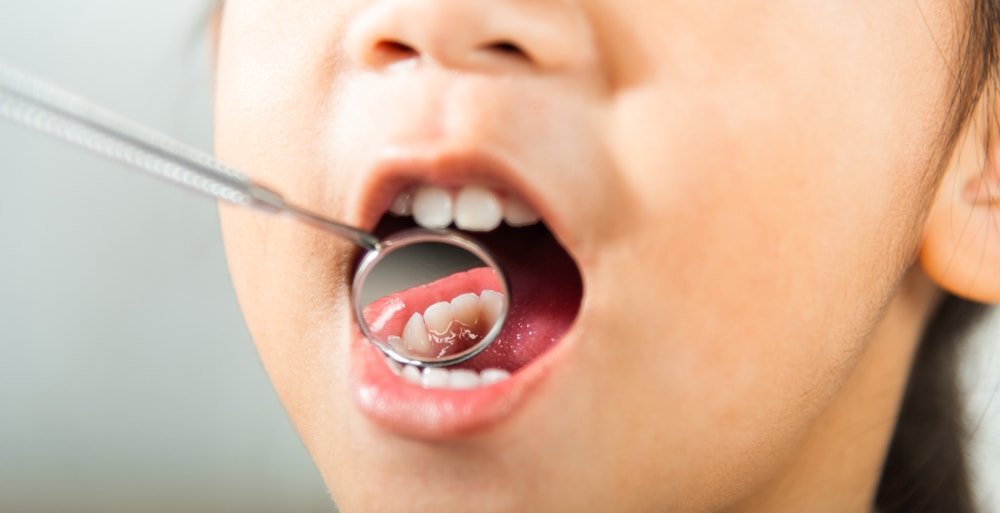
Mothers, sometimes some bad habits can unknowingly damage your little one's teeth which are still growing. Starting from the habit of drinking from a milk bottle for too long to sucking your fingers. Each of these habits can potentially cause dental problems such as caries or cavities in the future. So that this condition doesn't happen, let's find out about habits that can damage children's teeth and how to deal with them below.
1. Drink milk from a bottle
The habit of drinking milk from a bottle can actually damage a child's teeth, especially if done when your little one is about to sleep. This habit can be the main cause of caries or cavities in children. Caries is formed due to sweet milk residue left in your little one's mouth. If not cleaned properly, this will become a nest for bacteria that damage teeth.
To avoid this, there are several steps you can take. First, try not to give milk from a bottle when your little one is sleeping, especially milk or drinks that contain high levels of sugar. If your little one is used to drinking before bed, give him water in a glass as a substitute.
Second, always clean your little one's mouth and teeth after eating, drinking milk and before sleeping. Use a special children's toothbrush or moistened gauze to clean your little one's teeth and gums. This will help remove plaque and reduce the risk of bacteria developing.
Finally, consult your dentist about using toothpaste with fluoride, which can help strengthen tooth enamel and protect teeth from further damage. Apart from that, also follow the following guide to caring for your child's teeth so that they are strong and healthy: How to ensure that your child has healthy and strong teeth.
2. Finger Sucking
Finger sucking is a fairly common habit among young children, Mother. Usually, your little one will suck his finger when he is feeling tired, anxious, scared or hungry.
This reflex activity provides a sense of comfort to your little one. However, if this habit continues until your little one is more than five years old – especially when the permanent teeth start to grow, this can cause serious problems with the structure of the mouth and the growth of the teeth.
Several studies also say that one of the causes of finger sucking is because your little one is weaned too quickly before he is ready, Mother. This is why not all children have the same weaning time, because each child has a different readiness to be weaned. Regarding that, come on, see how to wean children well here: How to Wean Children Aged 6 Months to 2 Years.
To overcome the habit of finger sucking, the first step is to identify the psychological or situational causes that encourage your little one to do this. Is this a sign that your little one is anxious or afraid? Instead of punishing which actually makes the situation worse, mothers can help your little one find other solutions so that he no longer sucks his fingers when he feels anxious or needs comfort. Instead, you can offer your little one a favorite toy or doll that your little one can hug and play with.
Then, record your little one's progress and give praise or a small gift as a form of appreciation for his efforts to stop the habit of sucking his fingers. If your little one has difficulty stopping this habit, you can use other tricks. For example, rubbing natural ingredients that taste unpleasant—such as ginger or turmeric—on your little one's fingers, or using waterproof tape to help them remember not to suck their fingers.
If this habit continues until your little one gets older, consultation with a dentist may be necessary. The doctor can recommend the use of special orthodontic appliances that can prevent finger sucking in a safe and effective way.
Mother wants to know more about your little one's sucking habit and how to stop it? Let's read the article here: Thumb Sucking and Tongue Thrusting Need to Be Wary.
3. Tongue Thrust
Tongue thrust is the habit of sticking the tongue forward and pressing it against the upper incisors when he is resting, speaking or swallowing. This habit can cause the incisors to be pushed forward, which not only affects the aesthetic appearance but also your little one's chewing function.
The causes of tongue thrust vary, ranging from enlarged tonsils, the habit of breathing through the mouth to problems with the upper dental arch or psychological factors. Your little one might do it when he is nervous or when he feels uncomfortable.
Mothers are advised to undertake habit therapy, which generally involves exercises designed to improve the way your little one swallows and tongue positions. These exercises aim to change the pattern of tongue placement and reduce inadvertent pressure placed on the teeth when swallowing.
Konten Belum Tersedia
Mohon maaf, halaman untuk artikel Bad Habits That Can Damage Your Little One's Teeth
belum tersedia untuk bahasa inggris. Apakah Bunda dan Ayah ingin melihat artikel lainnya dengan kategori yang sama ?